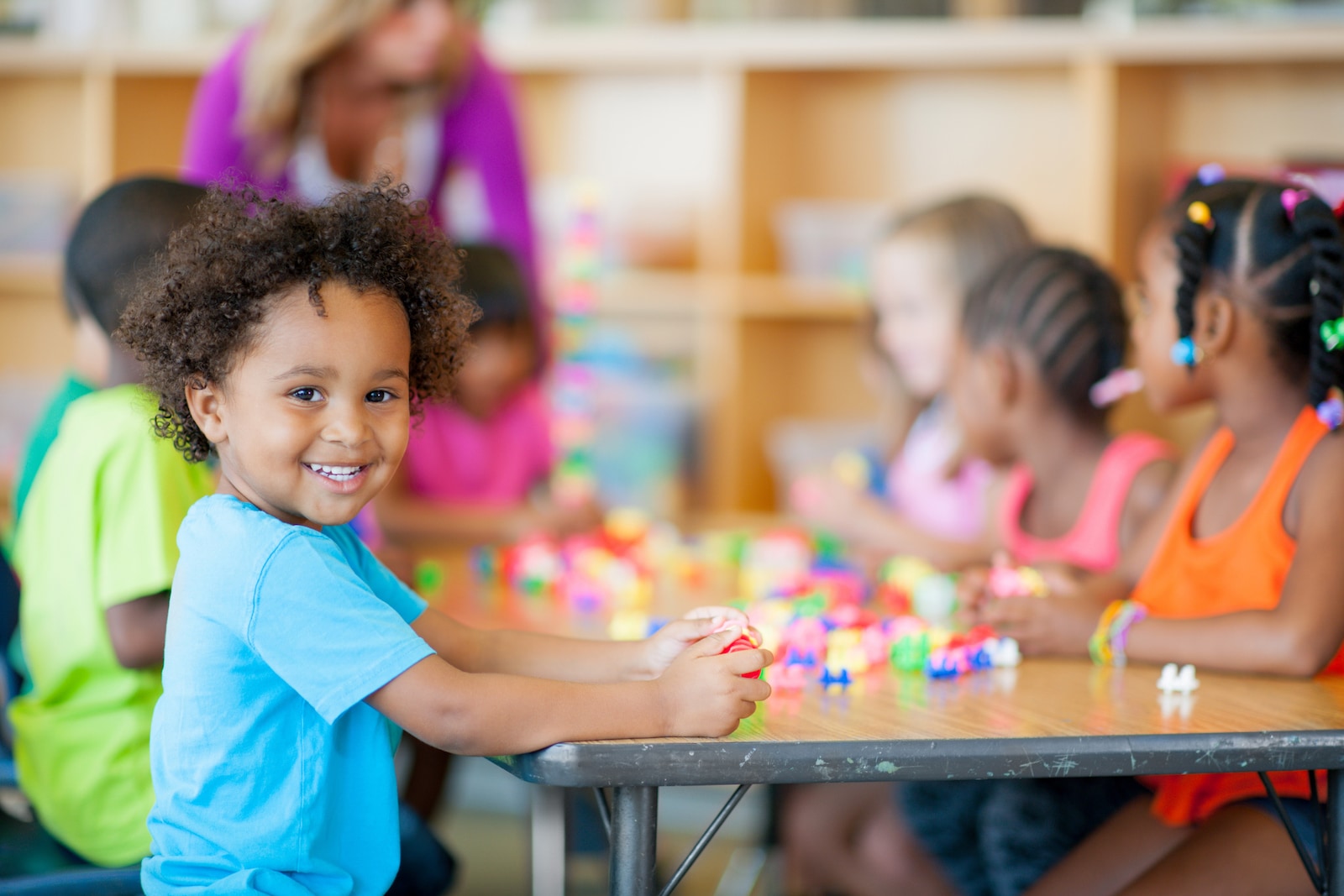In this article
While some kids seem to naturally exude it, the truth is, confidence can be learned or improved upon even in children; and parents and caregivers are the perfect teachers.
But why spend time on confidence building activities for kids when you already have a kid-centric to-do list a mile long? Because confidence, notes Melissa Boudin, a clinical psychologist in Los Angeles, affects the way a child “interacts with almost every aspect of their environment.” Put another way: It’s the proverbial backbone of your child’s life.
“[Confidence] impacts how they interact with their family, their peers at school and with their teachers, how they approach academics, social situations and more,” she explains. “It can also impact how vulnerable a child is to developing mental health issues, experiencing bullying and experiencing abuse.”
Whether your child could use a confidence boost in school or in social situations, here’s advice on how to build confidence in kids, according to experts.
Key takeaways
- Confidence shapes how kids learn, socialize and handle challenges.
- It can be strengthened through praise for effort, responsibility and support.
- Building it early helps kids grow into capable, resilient adults.
Building confidence in kids: practical tips
If your child isn’t brimming with confidence (or even if they are), there are ways to give it a boost. Here are tips for building confidence in kids, according to Boudin, Dr. Luke Prest, a board-certified pediatrician at the Children’s Hospital of Philadelphia and Marisha Mathis, a licensed clinical social worker specializing in children, teens and families dealing with anxiety, depression and self-esteem at Thriveworks in Raleigh, North Carolina:
1. Start with activities they’re already confident in
Since new things can feel extra challenging for kids struggling with confidence, Boudin recommends encouraging engagement in activities that they feel confident in. “Encourage and celebrate their ability within that,” she says, “and use those strengths as a stepping point for them to try new things.”
When your child moves onto the next thing, be sure to offer a lot of support. “As they try new things, work with them closely,” continues Boudin. “Show them how to do new things and work with them through doing it on their own.”
2. Celebrate “failures”
Encouraging your child to have a “growth mindset” — viewing skills as learnable, as opposed to set in stone — can help build confidence; and one way to do this, notes Boudin, is to “celebrate ‘failures’ as learning opportunities that bring them closer to accomplishment.”
For instance, while a child doesn’t have to be happy that they didn’t win the science fair, ultimately, they should take away something they know they should do differently next time. (In other words: They eventually should come to the realization that they’re closer now than they previously were.)
Mathis agrees, noting that parents and caregivers should offer support and encouragement to kids “even when their attempts don’t yield the results they were hoping for.”
3. Help them set goals
According to Prest, parents and caregivers should ensure their childs #goals are more than just a hashtag. “Offering praise for achieving goals, even small goals, can have a major impact,” he says.
“A child’s confidence can grow when they feel included and have a sense of purpose,” he continues. “This can be brought about by getting them involved in activities with others where they can establish relationships and make friends. Helping your child set goals and achieve these goals can be impactful.”
4. Give them (real) responsibility
Does your child have a half-hearted chore list? Consider bumping their responsibilities up a notch (or three).
“Parents should keep in mind that they need to give their child a chance to show they are responsible,” Prest says. “If there are tasks to be done around the house, allowing a child to complete those tasks on their own without being continuously monitored can help establish a sense of responsibility and trust.”
Giving kids real opportunities to contribute at home also gives kids the “chance to make real decisions, which can boost confidence.” (Read: There’s not much to deliberate over when making their bed.)
5. Make sure they have a sense of community
Having a sense of community comes with a host of benefits, and one of them, Prest notes, is confidence. “Family and community pride can boost self-esteem significantly,” he says. “Some ways to encourage this pride are by participating in community events, having relationships with extended family members and learning about family history.”
Children will also be more confident, he says, if parents and peers are confident themselves. “A child will be more confident if there is confidence among the family and community.”
6. Practice positive affirmations
“Practice positive affirmations as a family, and with your child individually, to increase confidence,” Boudin notes. “Affirmations can help children see themselves as stronger, increasingly able, aware and in control of themselves/their environment, which in turn can increase their self-confidence.”
If Stuart Smalley immediately comes to mind when you hear the word “affirmations,” trust in the fact that they’ve come a long way from the “and doggone it, people like me” days. There are a number of truly empowering affirmations for kids today!
7. Avoid praising qualities
It’s more important, and confidence-boosting, to “praise effort, rather than qualities,” Boudin says.
“Praising qualities, such as ‘being smart,’ can lead a child to feel they are not smart when they get something wrong or fail,” she explains. “Praising a child’s effort and hard work instead will lead kids to believe that they can work through those challenges, problems or failures.”
“Praising a child’s effort and hard work instead will lead kids to believe that they can work through those challenges, problems or failures.”
— Melissa Boudin, clinical psychologist
8. Get professional help, if necessary
If your child doesn’t seem to be gaining confidence through attempts you’re making, or if there are “changes in moods or patterns,” Mathis recommends asking questions, allowing honesty and transparency, and potentially, advocating for professional help.
Why is building confidence in kids important?
Confidence can be thought of as a person’s mental and emotional scaffolding, as it plays a role in virtually every aspect of their life. For kids, confidence is a particularly important strength to hone since they’re still growing and figuring out their place in the world.
In other words: It’s easier — and more beneficial — to work on this skill early on.
“Developing confidence and self-esteem is an important part of childhood development,” notes Prest. “Confidence can influence how they react in situations, and it plays a role in their motivation, achievement and relationships.
What causes lack of confidence in a child?
While some research has shown there’s a genetic component to confidence (some people are just naturally born with more), a number of factors can have an impact, as well.
“When a child feels they don’t have a sense of purpose or belonging, they can begin to develop low confidence,” says Prest. “Additionally, if they don’t know where they fit in within the family and community structure, their confidence can be negatively impacted. They can also develop low confidence if they don’t feel trusted or listened to by family members.”
According to Mathis, low confidence can also be linked to:
- Failure.
- Ridicule.
- Lack of support.
- Bullying.
- Fear.
The impact of low confidence in school (and life)
While healthy confidence can beget healthy relationships, motivation and more, lack of confidence can have the opposite effect — particularly in the school setting.
“Low confidence can impact a child’s grades, the way that they learn and take in information, their desire to learn and their likelihood to ask questions in order to understand things,” explains Boudin.
“Low confidence can impact a child’s grades, the way that they learn and take in information, their desire to learn and their likelihood to ask questions in order to understand things.”
— Melissa Boudin, clinical psychologist
Additionally, Boudin notes, a lack of confidence can impact kids socially by “either limiting their friendships or making them susceptible to ‘friendships’ that are abusive or take advantage of them, as well as bullying.”
Kids with low confidence, Boudin continues, can also wind up feeling like they have “little control over their environment,” which can potentially lead to “mental health issues, such as depression and anxiety.”
Prest adds that “low confidence can also cause a child to avoid challenges or give up on tasks at the first sign of difficulty.”
The bottom line on building confidence in kids
Building confidence in kids is definitely worth putting the time and effort into, as it affects every aspect of kids’ lives — and it will only help them in the long run.
Says Mathis: “Kids should believe in themselves, so that they are willing to try, take healthy risks, advocate for themselves, ask questions and create boundaries.”





